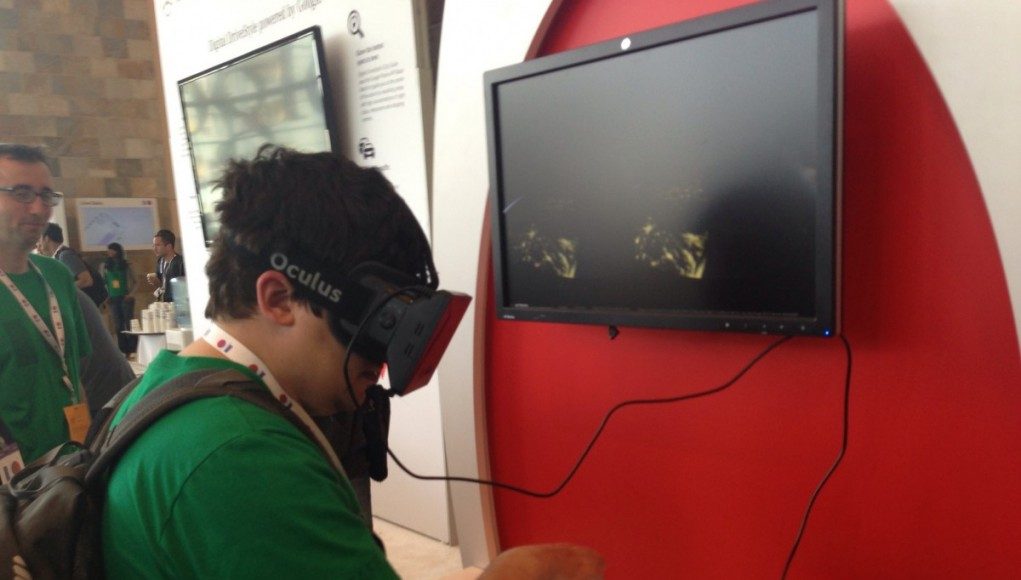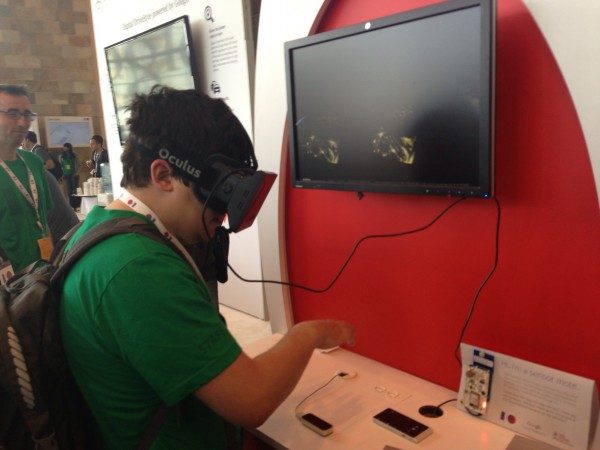Earlier today we noted that Google had mentioned some sort of Google Maps integration with the Oculus Rift and Leap Motion. A source on the ground at Google IO 2013 gives us the first photos and early details.
Juan Pablo Risso, a web developer attending Google IO 2013, was kind enough to check out the Google Maps booth for Road to VR. Though Google had said at their day 1 keynote that things wouldn’t be set up until tomorrow morning, Risso found the Oculus Rift and Leap Motion Google Maps demo already on display.

He shares with us some early details:
“For this demo they integrated Google Maps API for chrome and they are using the API from Rift and Leap to send the motion information to Chrome as well. They put it together overnight but base on the interest that it has generated they will release it publicly. Also the new version of Google Earth comes with leap motion support and they are planing to add Oculus Rift support,” Risso told me.
From the photos we can see the Oculus Rift and Leap Motion being used in what appears to be the new ‘Earth’ portion of Google Maps, a browser based version of Google Earth. No word yet on if it will support other parts of Google Maps.
We’ll keep you updated as we learn more.
Update (5/16/13): Here’s a video from IO 2013. It appears that the height of the user’s hand over the Leap determines their altitude while tilting the hand forward/back and side/side determines the direction and speed.











